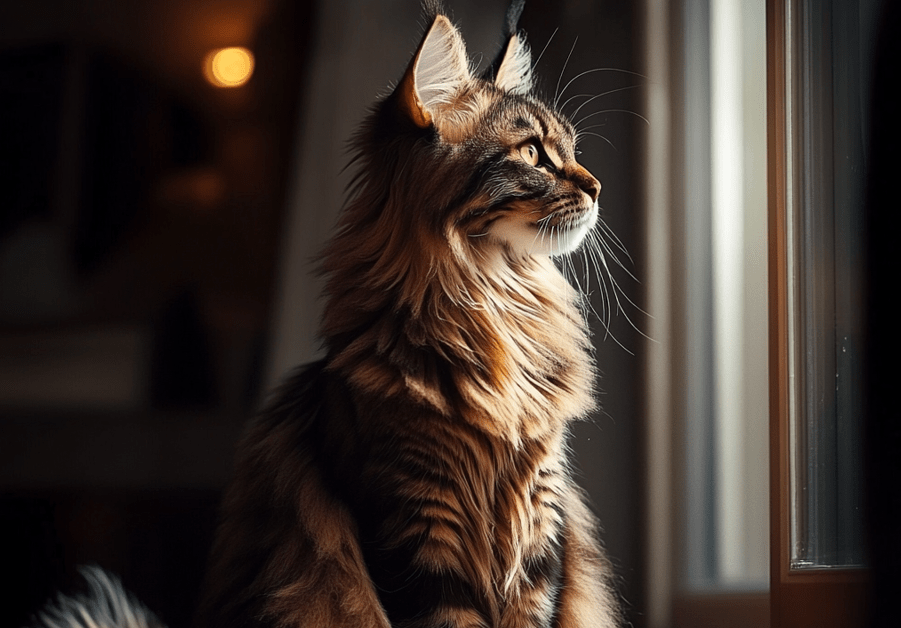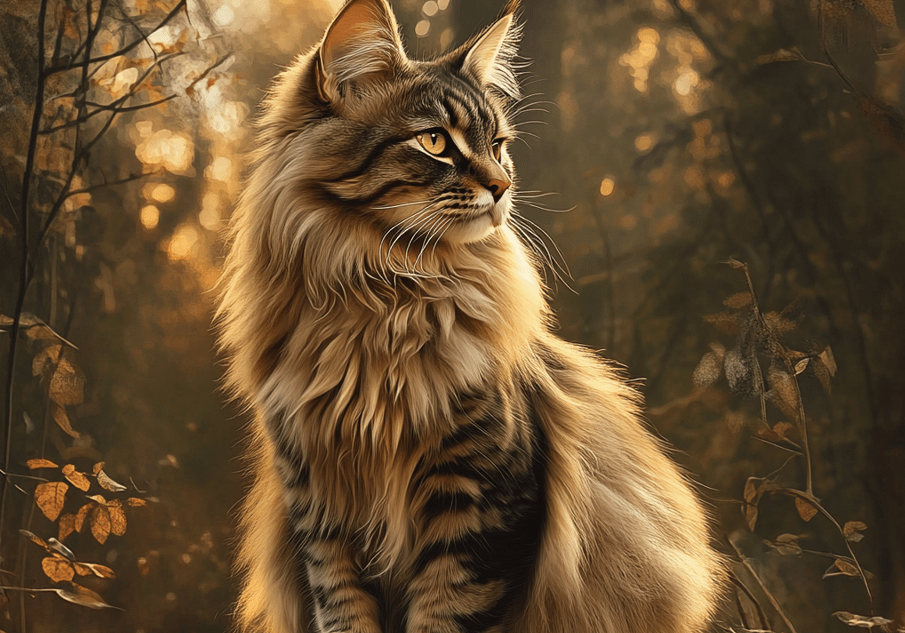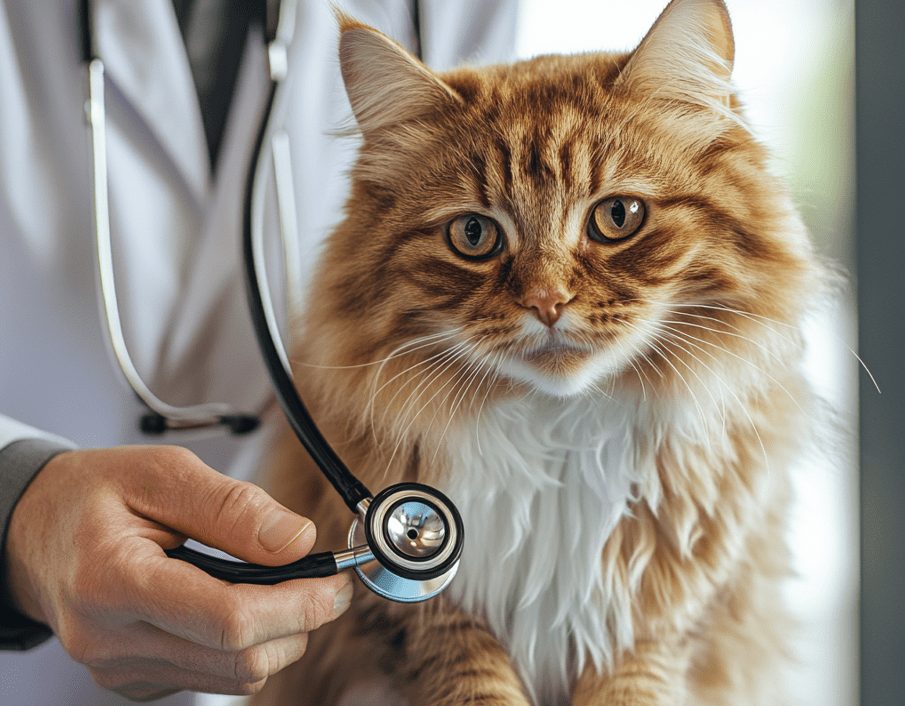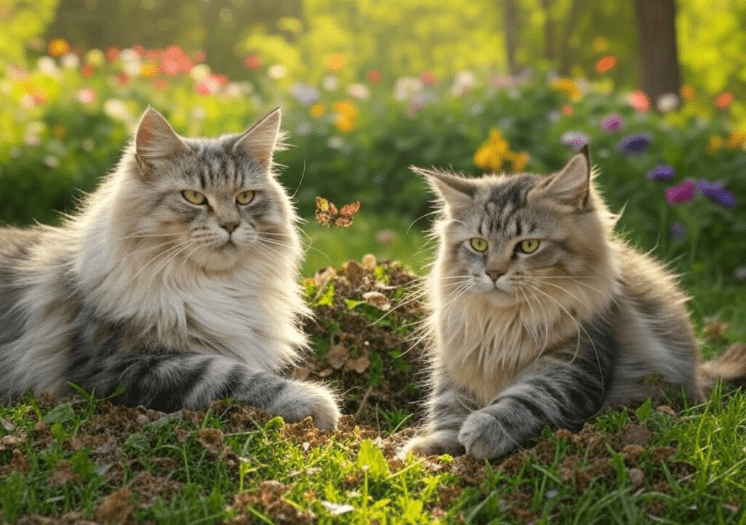
If your Maine Coon refuses wet food, you’re not alone. These majestic, long-haired cats are known for their quirky personalities and specific preferences, which can make mealtime challenging. Wet food is often recommended for its high moisture content and nutritional benefits, but many Maine Coons turn up their noses at it. This comprehensive guide explores the reasons behind why a Maine Coon refuses wet food and offers practical, vet-approved tips to encourage them to eat it. From understanding their instincts to adjusting textures and flavors, we’ll help you find solutions that work for your gentle giant.
Understanding Why Your Maine Coon Refuses Wet Food
Maine Coons are unique, with traits like their large size, playful demeanor, and ancestral ties to rugged environments shaping their behaviors, including their eating habits. When a Maine Coon refuses wet food, it’s often due to a combination of biological, environmental, or behavioral factors. Identifying the root cause is the first step to addressing this issue effectively.
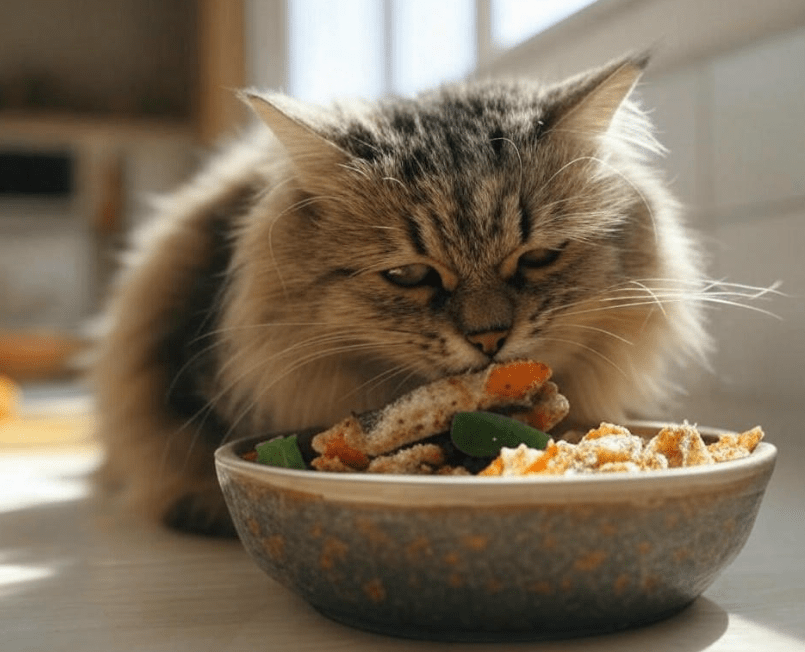
Common Reasons for Refusing Wet Food
Here are the primary reasons your Maine Coon may be turning away from wet food:
Texture or Consistency Preferences
Maine Coons can be picky about food textures. Some prefer the pate-like consistency of wet food, while others dislike it, favoring chunkier or gravy-based options. Their large jaws and teeth, designed for hunting, may make certain textures unappealing.
Flavor or Smell Sensitivities
Maine Coons have sensitive noses, and wet food’s strong odor can be off-putting if it doesn’t suit their taste. Fish-based flavors, for example, may be less appealing to some cats than poultry or beef.
Temperature Issues
Wet food served straight from the refrigerator can be too cold, reducing its aroma and palatability. Maine Coons often prefer food at room temperature or slightly warmed.
Dental or Oral Health Problems
Dental issues like gingivitis, tooth decay, or mouth ulcers can make chewing wet food painful. Maine Coons are prone to dental disease, especially as they age, which may cause them to avoid wet food.
Dietary Habits or Conditioning
If your Maine Coon was primarily fed dry kibble as a kitten or has a strong preference for it, they may resist wet food due to familiarity. This is common in cats with established eating routines.
Stress or Environmental Factors
Changes in the household, such as new pets, moved furniture, or loud noises, can cause stress, leading to appetite changes. Maine Coons are sensitive to their environment, and stress may make them refuse wet food.
Medical Issues
Underlying health problems, such as gastrointestinal issues, kidney disease, or food allergies, can reduce appetite or make wet food unappealing. Maine Coons are susceptible to conditions like hypertrophic cardiomyopathy and urinary tract issues, which may affect eating habits.
Food Quality or Spoilage
Low-quality wet food or food that’s been left out too long may develop an unpleasant taste or smell, causing rejection. Maine Coons, with their discerning palates, are quick to notice subpar food.
Boredom or Lack of Variety
Feeding the same wet food flavor or brand repeatedly can lead to boredom. Maine Coons, being intelligent and curious, may refuse food they find monotonous.
How to Encourage Your Maine Coon to Eat Wet Food
Once you’ve identified potential reasons for your Maine Coon refusing wet food, try these actionable strategies to make wet food more appealing. Always introduce changes gradually to avoid upsetting your cat’s stomach or increasing their resistance.
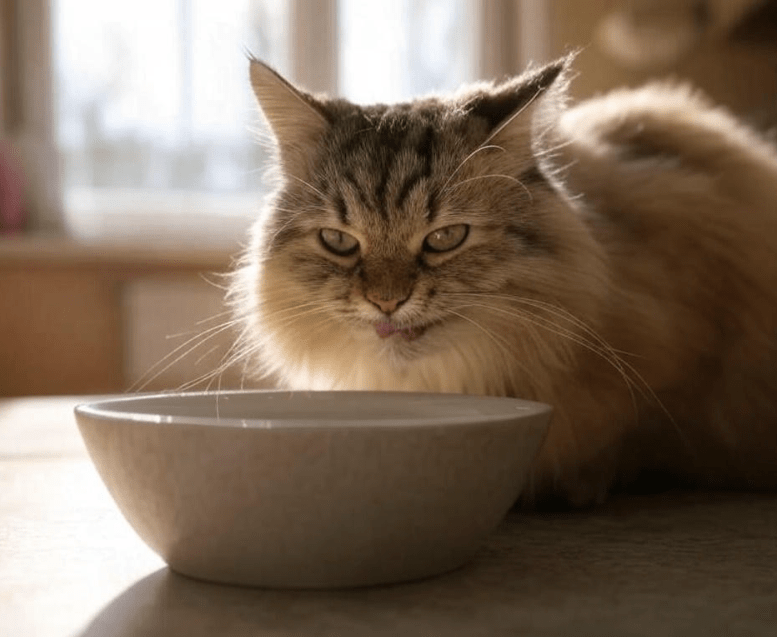
1. Experiment with Textures and Flavors
Maine Coons often have strong preferences for specific textures and flavors. To find what works:
Try Different Textures: Offer pate, shredded, chunky, or gravy-based wet foods to see which your Maine Coon prefers. For example, some may love the smooth texture of pate, while others enjoy licking gravy.
Switch Flavors: Rotate between poultry, beef, turkey, or fish-based options. Avoid overwhelming them with too many changes at once—introduce one new flavor every few days.
High-Quality Brands: Choose premium wet foods with named meat sources (e.g., “chicken” vs. “meat by-products”) and minimal fillers. Brands like Wellness, Tiki Cat, or Weruva are often well-received by picky eaters.
2. Adjust Food Temperature
Serving wet food at the right temperature can enhance its appeal:
Warm It Up: Let refrigerated wet food sit at room temperature for 10-15 minutes before serving, or warm it slightly in the microwave (5-10 seconds, stirring to avoid hot spots). Ensure it’s lukewarm, not hot.
Avoid Cold Food: Cold food has a weaker aroma, which can deter Maine Coons with sensitive noses.
3. Enhance the Food’s Appeal
If your Maine Coon still refuses wet food, try making it more enticing:
Add Toppers: Sprinkle freeze-dried meat treats, tuna flakes, or a small amount of low-sodium chicken broth over the wet food to boost flavor.
Mix with Dry Food: Gradually mix small amounts of wet food into their favorite dry kibble, increasing the wet food ratio over weeks to transition them.
Use Catnip or FortiFlora: A pinch of catnip or a vet-recommended probiotic like FortiFlora can make wet food more appealing.
4. Address Dental and Medical Issues
Health problems can significantly impact your Maine Coon’s willingness to eat wet food. Take these steps:
Schedule a Vet Visit: Have your vet check for dental issues, gastrointestinal problems, or other conditions. Dental cleanings or treatments for issues like gingivitis can restore appetite.
Monitor Symptoms: Look for signs of health issues, such as bad breath, drooling, weight loss, or changes in litter box habits, which may indicate a problem.
Soft Foods for Dental Pain: If dental issues are present, try softer pate-style wet foods or consult your vet about prescription diets.
5. Create a Positive Feeding Environment
Maine Coons are sensitive to their surroundings, and a stressful feeding area can lead to food refusal. Optimize their mealtime experience:
Quiet Location: Place the food bowl in a calm, low-traffic area away from loud appliances or other pets.
Clean Bowls: Use wide, shallow bowls (ideal for their large faces) and clean them daily to remove food residue or odors.
Consistent Schedule: Feed at the same times each day to build a routine, which Maine Coons thrive on.
Minimize Stress: Avoid sudden changes in the household, and use pheromone diffusers like Feliway to reduce anxiety.
6. Transition Gradually
If your Maine Coon is used to dry food, a sudden switch to wet food can cause resistance. Transition slowly:
Start Small: Mix a teaspoon of wet food into their dry food, gradually increasing the proportion over 1-2 weeks.
Monitor Reactions: Watch for digestive upset (e.g., vomiting, diarrhea) and slow the transition if needed.
Be Patient: Some Maine Coons take weeks to fully accept wet food, especially if they’re older or set in their ways.
7. Keep Food Fresh
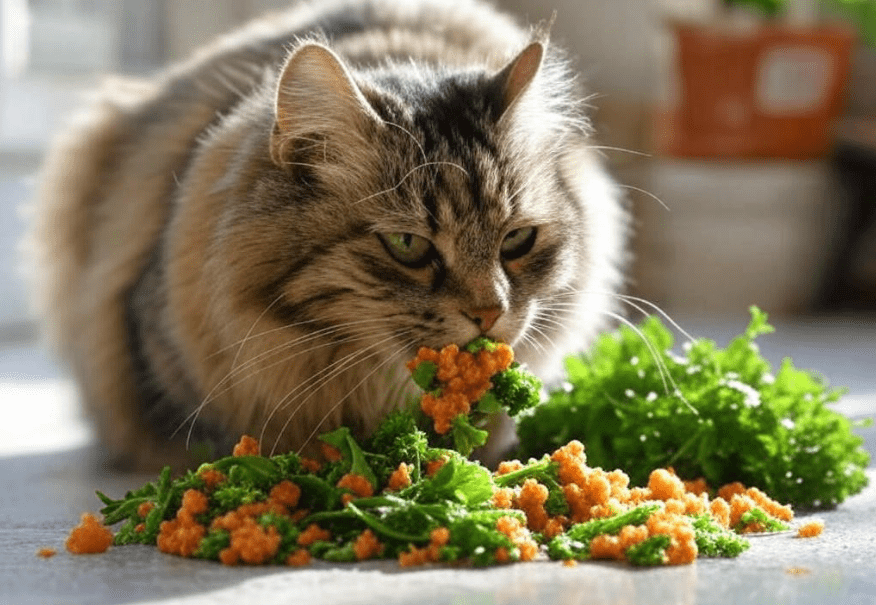
Maine Coons are fastidious and may refuse wet food that’s not fresh:
Serve Small Portions: Offer small amounts of wet food (1-2 tablespoons) to ensure it’s eaten before it dries out or spoils.
Store Properly: Refrigerate opened cans immediately and use within 2-3 days. Cover bowls of uneaten food to preserve freshness.
Avoid Overexposure: Don’t leave wet food out for more than 30-60 minutes, as it can develop an unappealing texture or smell.
8. Introduce Variety
To prevent boredom, incorporate variety into your Maine Coon’s diet:
Rotate Flavors: Switch between 2-3 flavors or brands every few weeks to keep meals interesting.
Mix Wet and Dry: If your Maine Coon loves dry food, maintain a balanced diet with both wet and dry options to ensure hydration and nutrition.
Consult Your Vet: Ensure variety aligns with your cat’s nutritional needs, especially if they have health conditions.
9. Rule Out Food Allergies or Sensitivities
Food allergies or intolerances can cause Maine Coons to refuse wet food. Common culprits include fish, grains, or artificial additives. To address this:
Try Limited-Ingredient Diets: Choose wet foods with single protein sources (e.g., turkey or duck) to identify triggers.
Elimination Diet: Work with your vet to conduct an elimination diet, removing potential allergens for 8-12 weeks.
Watch for Symptoms: Allergies may cause skin issues, vomiting, or diarrhea alongside food refusal.
10. Consult a Veterinarian or Behaviorist
If your Maine Coon continues to refuse wet food despite your efforts, professional help may be needed:
Veterinary Evaluation: A vet can run tests to diagnose underlying issues like kidney disease, diabetes, or hyperthyroidism, which are common in Maine Coons.
Behavioral Support: A feline behaviorist can assess environmental or psychological factors contributing to food aversion and suggest tailored solutions.
Prescription Diets: Your vet may recommend specialized wet foods designed for picky eaters or specific health conditions.
Benefits of Wet Food for Maine Coons
Understanding why wet food is beneficial can motivate you to persist in encouraging your Maine Coon to eat it. Key advantages include:
Hydration: Wet food’s high moisture content (70-80%) supports urinary health, reducing the risk of urinary tract issues, which Maine Coons are prone to.
Weight Management: Wet food is often lower in calories per volume than dry kibble, helping prevent obesity in these large cats.
Dental Health: While not as effective as dental treats, wet food is easier on sore gums or teeth compared to hard kibble.
Nutrient Density: High-quality wet foods provide balanced nutrition with bioavailable proteins and fats, supporting coat, muscle, and joint health.
Common Mistakes to Avoid
When addressing your Maine Coon refusing wet food, steer clear of these pitfalls:
Forcing Food: Pressuring your cat to eat can increase stress and resistance. Be patient and gentle.
Ignoring Health Issues: Always rule out medical causes before assuming pickiness.
Inconsistent Feeding: Chopping and changing foods too quickly can confuse or upset your cat.
Low-Quality Food: Cheap wet foods with fillers or artificial flavors are less palatable and nutritious.
Neglecting Hydration: If wet food isn’t an option, ensure ample water intake to compensate for lower moisture.
Long-Term Strategies for Success
To ensure your Maine Coon enjoys wet food consistently:
Monitor Preferences: Regularly assess which textures or flavors your cat enjoys, as preferences can change with age or health.
Maintain Routine: Stick to a feeding schedule and environment that works for your cat.
Stay Proactive: Schedule annual vet checkups to catch health issues early, especially dental or urinary problems.
Educate Yourself: Stay informed about feline nutrition and new wet food products to keep meals exciting.
Conclusion
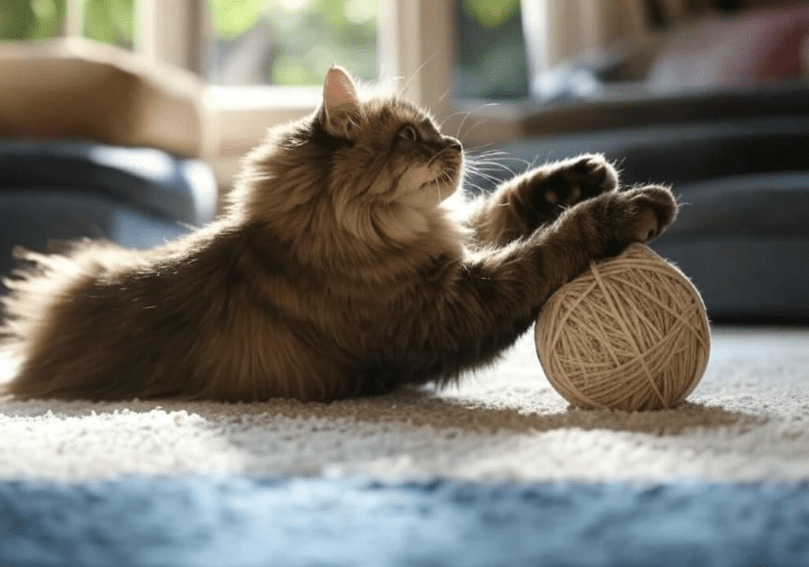
When your Maine Coon refuses wet food, it can be frustrating, but understanding the reasons behind this behavior is key to finding solutions. Whether it’s texture preferences, health issues, or environmental stressors, the strategies outlined above—from experimenting with flavors to consulting a vet—can help you encourage your Maine Coon to embrace wet food. With patience, persistence, and a tailored approach, you can ensure your gentle giant enjoys the hydration and nutrition wet food provides, supporting their long-term health and happiness. For ongoing challenges, don’t hesitate to seek professional advice to keep your Maine Coon thriving.

